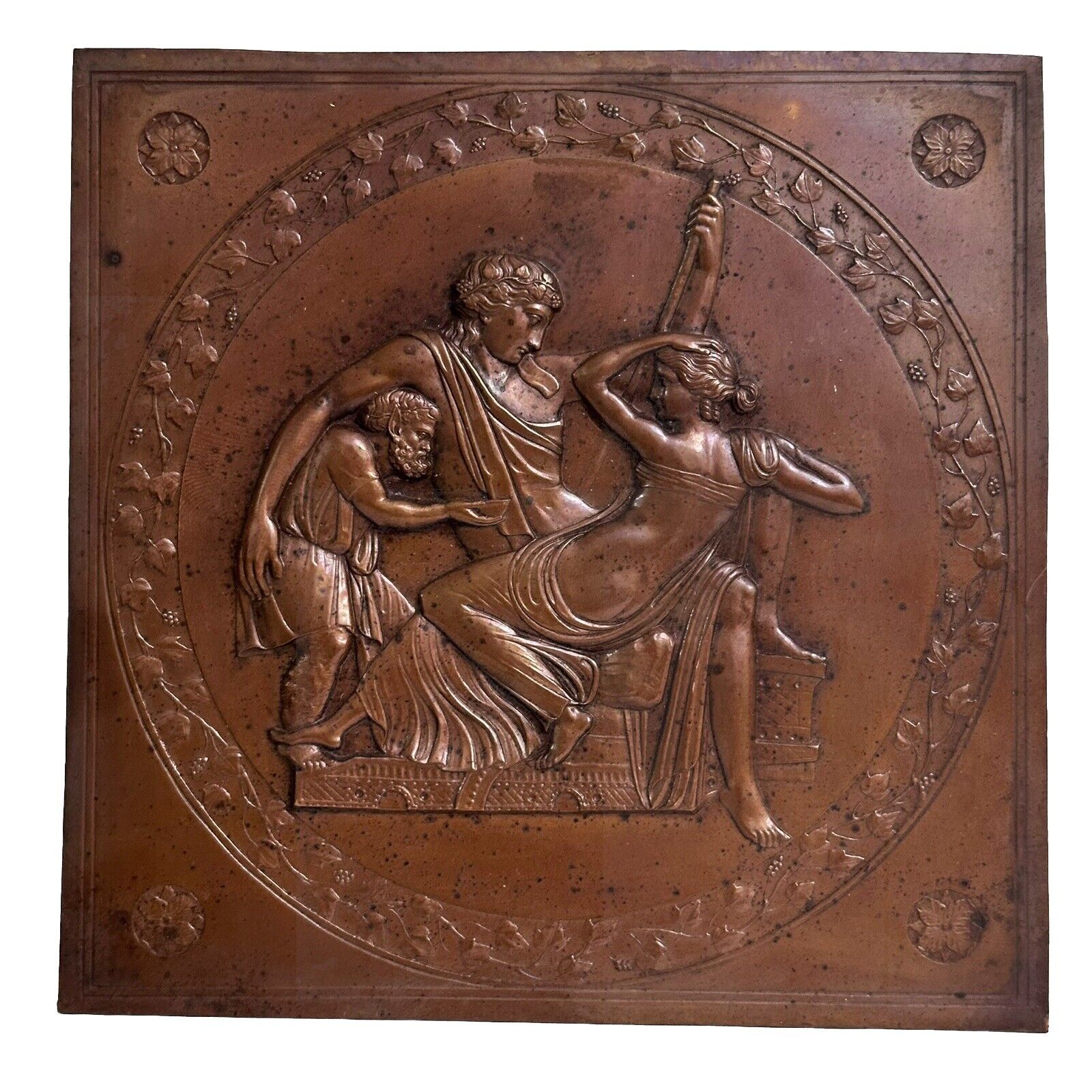When you click on links to various merchants on this site and make a purchase, this can result in this site earning a commission. Affiliate programs and affiliations include, but are not limited to, the eBay Partner Network.
Geras (Senectus) & Hebe
Greek Mythology
Bronze High Relief Copper Tile
5.5” x 5.5”
Geras
In Greek mythology, Geras /ˈdʒɪərəs/ (Ancient Greek: Γῆρας, romanized: Gễras), also written Gēras, was the god of old age. He was depicted as a tiny, shriveled old man. Gēras's opposite was Hebe, the goddess of youth. His Roman equivalent was Senectus. He is known primarily from vase depictions that show him with the hero Heracles; the mythic story that inspired these depictions has been lost.
Geras
Personification of Old age
Geras, detail of an Attic red-figure pelike, c. 480–470 BC, and Nyx
Equivalents
Roman to Hesiod, Geras is one of the many sons and daughters that the night goddess Nyx produced parthenogenetically. However, both Hyginus and Cicero add Erebus, Nyx's consort, as his father.
In the myth of Tithonus, the mortal prince received immortality, but not agelessness, from the gods so when old age came to him he kept aging and shrinking but never dying. In the end his divine lover Eos turned Tithonus into a cicada. In several ancient Greek vases Geras is depicted fighting Heracles, although no relevant written myth survives. Geras is presented as an old, wrinkled bald man begging for mercy.
Philostratus claimed that the people of Gadeira set up altars to Geras and Thanatos.
Function
Geras as embodied in humans represented a virtue: the more gēras a man acquired, the more kleos (fame) and arete (excellence and courage) he was considered to have. In ancient Greek literature, the related word géras (γέρας) can also carry the meaning of influence, authority or power; especially that derived from fame, good looks and strength claimed through success in battle or contest. Such uses of this meaning can be found in Homer's Odyssey, throughout which there is an evident concern from the various kings about the géras they will pass to their sons through their names. The concern is significant because kings at this time (such as Odysseus) are believed to have ruled by common assent in recognition of their powerful influence, rather than hereditarily. The Greek word γῆρας (gĕras) means "old age" or in some other literature "dead skin" or "slough of a snake"; this word is the root of English words such as "geriatric".







